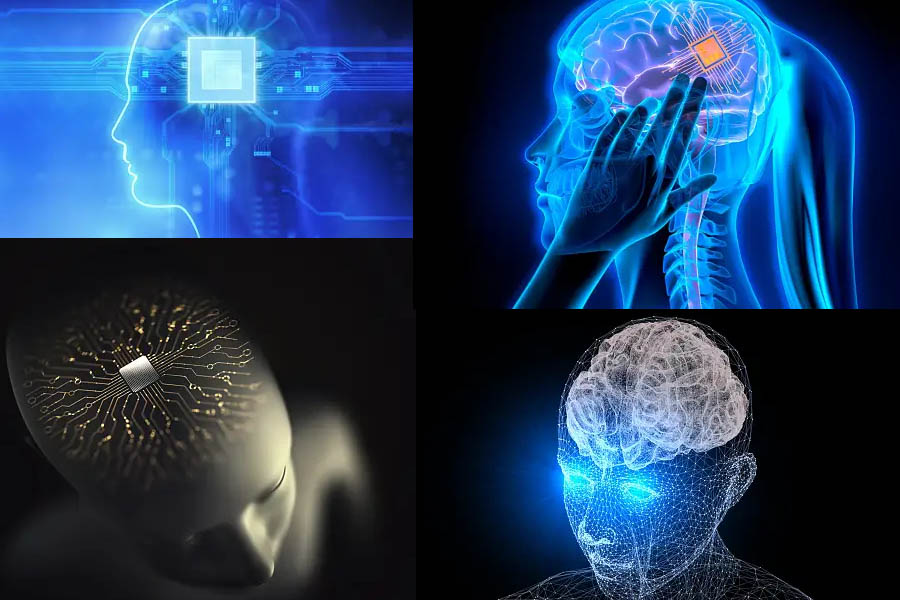
In a groundbreaking announcement, Tesla and SpaceX CEO Elon Musk revealed that Neuralink, one of his ventures, has successfully implanted its first brain-computer interface (BCI) device into a human. Musk shared the news via Twitter, emphasizing the potential milestone in the development of technology that could revolutionize the lives of individuals suffering from conditions like paralysis.
Dive into the historic achievement as Neuralink accomplishes the first human implant, marking a significant leap forward in brain-computer interface (BCI) technology. Discover Elon Musk's visionary venture into neuroscience and explore the profound implications of neural implants for human augmentation and futuristic technological breakthroughs.
The patient, who underwent the procedure the day before Musk's tweet, is reportedly "recovering well." While specific details about the individual remain undisclosed, Neuralink had previously mentioned seeking a trial participant with quadriplegia, indicating the device's potential application for those with severely limited movement.
Elon Musk hinted at promising results from the initial phase of the implant, noting "neuron spike detection." This suggests that Neuralink's device can pick up signals from individual neurons inside the brain, a significant advancement that could lead to decoding higher-quality brain signals. However, Musk did not specify the number of neurons the device is currently detecting, leaving certain aspects of the technology's capabilities unexplored.
The announcement has sparked enthusiasm on social media, with memes circulating that envision human-robot combinations straight out of science fiction. However, the primary purpose of Neuralink's technology is to enhance the lives of individuals with severe disabilities, requiring close ethical and regulatory scrutiny.
Neuralink faces competition from other brain-computer interface companies, each with its own unique approach. Synchron, for example, has developed a stent-like device implanted near the brain, while Precision Neuroscience utilizes a microelectrode array temporarily placed on the brain's surface. Blackrock Neurotech boasts an older device that has enabled patients to perform tasks like eating and sending emails by thought alone.
Neuralink, founded in 2016 and valued at $3.5 billion as of November 2023, has named its product "Telepathy." Elon Musk envisions a future where this technology enables control of smartphones or computers through mere thoughts. The company has showcased videos of monkeys implanted with its device successfully maneuvering a cursor and playing the video game "Pong."
However, challenges remain, such as how the brain will respond to the implanted threads over time. The potential growth of tissue around the electrodes could degrade the signals they capture. Despite these uncertainties, completing the first surgery within six months of opening trial recruitment demonstrates Neuralink's agility and the evident demand for their innovative product.
Jacob Robinson, CEO of Motif Neurotech, a company developing its own brain implant for treating depression, sees Neuralink's accomplishment as a validation of the growing interest and demand for neurotechnology. As Neuralink paves the way for a future where minds can interact seamlessly with technology, ethical considerations and ongoing advancements will shape the evolution of this transformative field.
Message To The Readers:
Neuralink’s First Human Implant: Elon Musk announced that Neuralink, his brain-computer interface company, has successfully implanted its device into a human with quadriplegia, enabling neuron spike detection.
Potential Applications and Benefits: Neuralink’s technology aims to enhance the lives of individuals with severe disabilities, such as paralysis, by allowing them to control smartphones or computers with their thoughts. The device could also unlock new possibilities for communication, education, and entertainment.
Challenges and Competition: Neuralink faces technical, ethical, and regulatory hurdles, such as the long-term stability and safety of the device, as well as competition from other brain-computer interface companies, each with its own approach and advantages.
Future Outlook: Neuralink’s accomplishment is a validation of the growing interest and demand for neurotechnology, a field that could transform the way humans interact with technology and each other.
Thank you for reading: globalpostheadline.com | If you want to advertise your Company, Events, Movies, Products, Hotels, Travel Packages Let us know